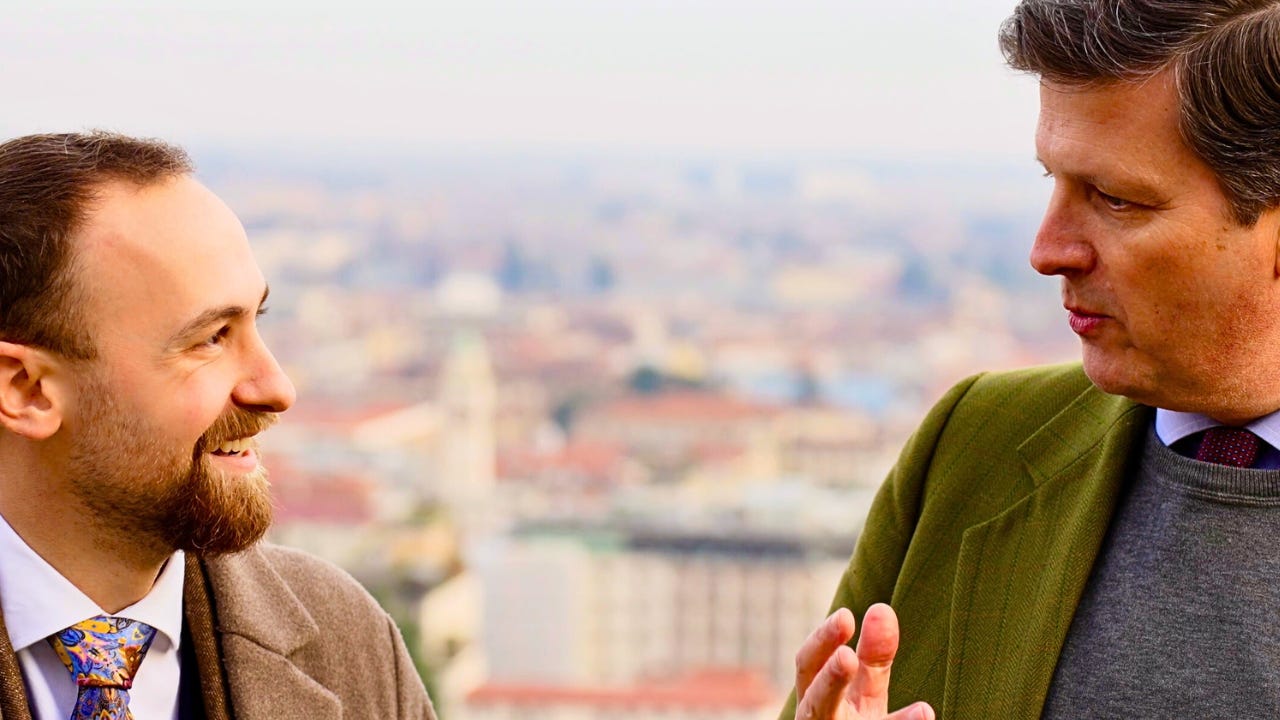My Interview with an Archduke
Habsburg rules for life...
Being an online creator has afforded me the opportunity to meet a plethora of fascinating people. From public figures to offline professionals, my in-person encounters with those I first connected with via the internet have been, in nearly every case, a genuine pleasure.
Few, however, have made such a positive and lasting impression on me than the ebullient Archduke Eduard of Austria, who last year was kind enough to travel from Rome to Bergamo to grant me a few hours of his time for an interview. Over the course of his stay here, we discussed everything from Richard Wagner to Hayao Miyazaki, homeschooling, the life of faith, and more.
It was an evening unlike many others, and is best encapsulated in a word that similarly describes the Archduke himself — edifying.
My interview with Eduard is linked below, and is free to watch for all readers of INVICTUS. But in today’s article, I want to reflect on four specific guiding principles I have learned from Eduard’s example and have worked to incorporate into my life over the past year.
In my experience, I have found these principles to be quiet lodestars, shaping the course of my actions over time and offering clarity in the midst of confusion. It is my hope that they are similarly edifying for you, and encourage you on your journey to follow in the footsteps of the Habsburgs and build a dynasty of your own…
👇 Click below to watch my full two-hour interview with Archduke Eduard 👇
Now, on to today’s article…
Principle #1: Establish Your Protocol
One of the more unexpected lessons I learned from Archduke Eduard was the importance of protocol. As Hungary’s diplomat to the Holy See, Eduard is often forced to observe strict protocol governing his interactions with representatives of other sovereign nations. Yet far from resenting this, he relishes it, and explains the value of protocol as such:
Protocol sets a table for the diplomatic game because it provides a common space and a set of common rules for meaningful encounters.
-Eduard Habsburg, The Habsburg Way
In other words, the principle value of protocol is that it opens up a safe point of entry into unknown, and potentially hostile, human engagements. A handshake, for example, eliminates the awkwardness of not knowing what to do when you meet someone. Instead of wasting mental energy evaluating whether you should smile, wave, or hug the person in front of you, you can simply default to the accepted and trusted standard.
In doing so, you are now free to focus on what really counts: looking the other person in the eyes, remembering his name, and starting off a conversation gracefully. Small stakes, perhaps, when meeting a friend of a friend, but absolutely necessary in high pressure situations — especially when a small misunderstanding or perceived insult could threaten to derail all the progress you’ve made. Eduard underscores the importance of protocol in these moments:
I believe that protocol itself is the very thing that keeps diplomacy alive in a time of great chaos. It protects the weak from the strong and promotes dialogue even — and especially — when words fail.
Fortunately, you don’t have to be a diplomat or work in a royal court to benefit from the value of protocol. Arguably, today more than ever, you have the ability to establish and follow your own protocol in everything from business to family affairs. What kind of protocol do you want to govern how your family receives guests? Dines together? Handles arguments? Dresses for church?
In considering these topics, it is helpful to remember that there will never be a complete absence of protocol. In the absence of an established one, an unwritten one will naturally emerge, and will govern your actions and interactions whether you want it to or not.
For this reason, it is best to get ahead of the game. You can start by identifying the areas of your life in which you’ll most benefit from an intentionally structured protocol, and then get to work defining what that looks like. Doing this requires time and intentionality, but once you establish your protocol, it’s easy to follow.
But if you’re serious about doing this, then you must keep the next principle in mind as you do so — otherwise, you risk losing yourself along the way…



